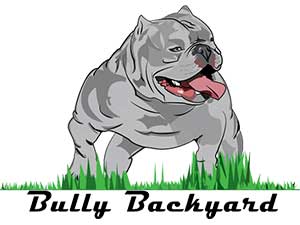Fluffy American Bully- Is It Possible?
Have you ever wondered if the fluffy gene, found in fluffy French Bulldogs, could be introduced into the American Bully breed?
As a breeder and enthusiast of American Bullies, I have been captivated by the potential of this genetic trait.
In this article, I will explore the concept of the fluffy gene, its inheritance patterns, and whether it can be successfully incorporated into American Bullies.
By understanding the mysteries surrounding the fluffy gene, we may uncover exciting possibilities for the future of the American Bully breed.
Understanding the Fluffy Gene
The Fluffy Gene in French Bulldogs is a recessive long-haired gene that these dogs can carry. Understanding the genetic inheritance of this gene is crucial in breeding strategies to produce American Bullies with fluffy coats.
The appearance traits associated with the Fluffy Gene include medium-to-long-length, fluffy hair that adds a unique and eye-catching look to the breed. However, it’s important to consider the health implications of the fluffy coats.
While the fluffy gene doesn’t have direct health concerns, the longer hair can require more grooming and maintenance to prevent matting and skin issues. Additionally, the popularity of fluffy coats among bulldogs has risen in recent years, making it essential for breeders to carefully select carriers of the Fluffy Gene to maintain the breed’s overall health and standard.
The Link Between French Bulldogs and American Bullies
Now let’s explore the connection between French Bulldogs and American Bullies, shedding light on their shared genetic traits and their role in developing fluffy coats in American Bullies. The fluffy gene inheritance in American Bullies is believed to come from their French Bulldog ancestors. French Bulldogs can carry a copy of a recessive long-haired gene, which can be passed on to their American Bully offspring. This gene is responsible for the potential coat length variations in American Bullies, including the development of fluffy coats.
The prevalence of the fluffy gene in American Bullies is not as common as in French Bulldogs, as American Bullies are primarily bred for their muscular build and distinctive appearance. However, breeders can strategically incorporate the fluffy gene into their breeding programs to produce American Bullies with fluffy coats. Breeding strategies for American Bullies with the fluffy gene involve pairing them with French Bulldogs or other breeds that carry the long-haired gene.
It is important to note that the fluffy gene in American Bullies may have health implications. The long-haired phenotype is recessively inherited, which means that breeding two American Bullies with the fluffy gene can increase the risk of certain health issues associated with long coats, such as skin allergies and matting.
Table: Fluffy Gene Inheritance in American Bullies
Gene Combinations and Coat Length
| Gene Combination | Coat Length | Description |
|---|---|---|
| S/S | Short Hair | Non-carrier |
| S/L | Short Hair | Carries 1 copy of long hair |
| L/L | Long Hair | 2 copies of long hair |
Can American Bullies Carry the Fluffy Gene?
American Bullies have the potential to carry the fluffy gene, which can contribute to variations in coat length. The prevalence of the fluffy gene in American Bullies isn’t well studied, but specific individuals within the breed can carry this gene. The fluffy gene can significantly impact American Bullies’ appearance, resulting in a longer and fluffier coat compared to the typical short coat seen in the breed.
Breeding American Bullies with the fluffy gene can present potential challenges. The fluffy gene is recessively inherited, meaning both parents must carry the gene to produce fluffy puppies. This can make it difficult to breed for the fluffy trait consistently. Additionally, breeding for specific coat traits can divert attention from other, more important aspects of the breed, such as its look.
Despite these challenges, there’s an insane demand for fluffy bulldogs in the pet market. And their prices are over $10,000. I suppose many individuals prefer the unique and eye-catching appearance of a fluffy-coated American Bully. Imagine their prices.
However, it’s important to note that breeding for appearance traits should always be done responsibly, with the health and well-being of the dogs as the top priority.
Genetic testing can be used to determine the presence of the fluffy gene in bulldogs or bullies. This can help breeders make informed decisions about breeding fluffy-coated puppies. By understanding the genetics behind coat length variations, breeders can work towards producing healthy and well-rounded American Bullies with the desired traits.
Exploring the Coat Length Variants in the FGF5 Gene
Exploring the FGF5 gene allows us to understand the coat length variants found in different dog breeds. The FGF5 gene plays a crucial role in determining the length of a dog’s coat, including the genetic basis of long hair in French Bulldogs. By studying this gene, we can better understand the inheritance patterns of the fluffy gene in bulldogs or Bullies and explore the potential for introducing the fluffy gene into American Bully breeding programs.
The FGF5 gene has been identified as a major determinant of hair length in dogs. Through genotyping studies, researchers have found that different variants of the FGF5 gene are associated with long hair in specific breeds. The presence of the L, L2, L3, L4, or L5 variants indicates the breed’s potential for long hair, but not the actual length of the hair.
In American Bullies, the influence of the FGF5 gene on coat length is particularly interesting. Introducing the fluffy gene into American Bully breeding programs could result in a variation of coat lengths, impacting the appearance of these dogs. However, it’s important to consider the potential impact on the health of American Bullies, as certain coat length variants may be associated with increased grooming needs or other health concerns.
Understanding the coat length variants in the FGF5 gene is crucial in harnessing the potential of the fluffy gene in American Bullies. By carefully selecting breeding pairs and considering both appearance and health factors, breeders can work towards producing American Bullies with desired coat lengths while ensuring the breed’s well-being.
Coat Length Testing and Results
To determine the coat length of American Bullies, coat length testing can be conducted using the FGF5 gene variants. This genetic testing allows for a precise understanding of coat length inheritance and can inform breeding strategies for coat length in American Bullies.
The implications of the fluffy gene in American Bullies are significant, as it introduces the possibility of producing American Bullies with a fluffy coat, which is a departure from the traditional short coat seen in the breed. Understanding the FGF5 gene and its variants is crucial in harnessing the potential of coat length manipulation in American Bullies.
Through coat length testing, the results will indicate whether the dog carries the short hair gene (S/S), carries one copy of the long hair gene (S/L), or has two copies of the long hair gene (L/L). It’s important to note that the variants identified in the FGF5 gene are associated with the breed, not the hair’s actual length.
Frequently Asked Questions
What Is the History and Origin of Fluffy French Bulldogs?
The history and origin of fluffy French Bulldogs can be traced back to their evolutionary adaptation, genetic mutations, crossbreeding experiments, selective breeding practices, and the growing popularity and demand for this unique coat variation.
How does the fluffy gene affect the appearance and temperament of French bulldogs?
The fluffy gene in French Bulldogs affects their appearance by giving them slightly longer, fluffier hair. It doesn’t significantly impact their temperament. Fluffy French Bulldogs require regular grooming to maintain their coat. They are popular as pets despite potential health issues. Genetic testing for the fluffy gene is available, and breeding considerations should be considered.
Are Fluffy French Bulldogs Prone to Any Specific Health Issues?
No, fluffy frenchies are not prone to specific health issues more than the regular ones, except a bit more grooming activities and maybe more possibility for some skin-related issues.
Can American Bullies Carry the Fluffy Gene?
Yes, American Bullies can carry the fluffy gene. Breeding considerations should involve genetic testing for coat length variations. However, it’s important to note that carrying the fluffy gene must be introduced from other breeds..
What Are the Common Coat Length Variants in the FGF5 Gene and How Are They Identified Through Testing?
Coat length variants in the FGF5 gene can be identified through genetic testing. Common variants include L, L2, L3, L4, and L5. These mutations affect hair length, but do not indicate breed standards or hair length. Proper breeding practices should consider these variants.

